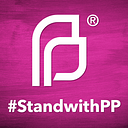It’s World Contraception Day!
As each year passes, all around the world, young folks are being failed when they are denied information regarding their sexual and reproductive health.
Since most nations don’t mandate a sexual education curriculum — except perhaps a misinformed one — a coalition of world health organizations took it upon themselves to empower the youth to make informed decisions regarding their sexual and reproductive health by rolling out education that does just that. World Contraception Day was founded in 2008 and the movement it’s established has only ignited and built momentum since. If one thing is clear, it’s that our young folks are eager for information, but when it comes to sex, they are often afraid to ask and are rarely given the appropriate information voluntarily. Because so many cultures stigmatize sex as a sinful act, and most predominately a heterosexual act, it is seldom that teens feel equipped with the facts about contraception.
Though upon founding, World Contraception Day was primarily to promote ways to prevent youth pregnancies, it has since evolved to be a day with a mission to educate young people so that they can feel empowered to make decisions regarding their sexual and reproductive health. Establishing a sex life can be intimidating, and most young people don’t attain adequate sexual education. Therefore, it’s on us as a society to bestow our youth with the necessary knowledge of and access to contraceptives. Removing the stigma that shames teen parents is an important component of that. It is also of the essence to include LGBTQIA+ youth in this conversation, otherwise, they run a higher risk of being exposed to STIs and HIV.
Contraceptives come in many forms and half the battle is discovering which method works best for you and your partner. Some of the most notable methods are condoms and the pill. However, there are 18 forms of contraceptives and many variations of each of these forms. Finding one that’s right for you can be difficult if you’re not informed on each type and you’re not sure how to access information that’s accurate.
So often, contraception falls on the shoulders of women, may it be through supplying the condom or by using a variation of birth control methods. This imbalance is not only inequitable, but it preludes to the fact that the consequences of unprotected sex often disproportionately affect women. The intention of prioritizing education surrounding contraception is not to shame teens out of parenthood, rather supply them with the necessary information for them to plan it accordingly, if at all.
Finding the right form of contraception is about so much more than preventing pregnancy or STI transmission, it’s also about prioritizing both one’s health as well as their pleasure. One shouldn’t have to be compromised in order to achieve the other. The reputation of condoms, for instance, is that they are uncomfortable for both parties. In this day in age, there are so many enhancements to choose from that you’re bound to find one that is pleasurable for both you and your partner. Alternatively, partners have turned to methods like withdrawal, also referred to as pulling out. This is a lifestyle choice of contraception and should be agreed upon by both partners.
The problem with many contraceptives is that they were designed with heterosexual couples in mind. Because of this, members of the LGBTQIA+ community are often ostracized from the conversation and unable to gain medically accurate information. Of this community, trans youth are especially at risk because so little research has gone into the sexual and reproductive healthcare of the trans community. Whereas cisgender folks can go to just about any reproductive health doctor, trans folks are afraid of being misgendered and dismissed because of their identity.
Havers of a uterus who are also undergoing hormone treatment therapy still run the risk of getting pregnant, despite taking testosterone. However, some fear that taking birth control may reverse the effects of their hormone treatment therapy. This is not the case. Birth control can also serve to ease any body dysmorphia being experienced by regulating one’s menstrual cycle, as well as preventing pregnancy for folks with uteruses who are transitioning while having sex with a cis-gender person with a penis. For those who would simply prefer not to inject estrogen of any kind into their system, copper IUDs are an alternative, as well as condoms and spermicide.
Contraceptives are a fundamental part of family planning, and they are also a fundamental part of living healthy lives. Planned Parenthood, the nation’s largest provider of sexual education, provides information on all 18 forms of contraceptives. Regardless of race, gender-identity, income-status, or age, the healthcare professionals at Planned Parenthood provide medically-accurate, inclusive, affirming care that is affordable and accessible to all.
Join us this World Contraception Day as we recommit ourselves to the education and empowerment of our youth.
You can make an appointment for contraception and more at www.ppnyc.org, and download our app, PPDirect, to get birth control and UTI treatment delivered straight to your door or pharmacy!
